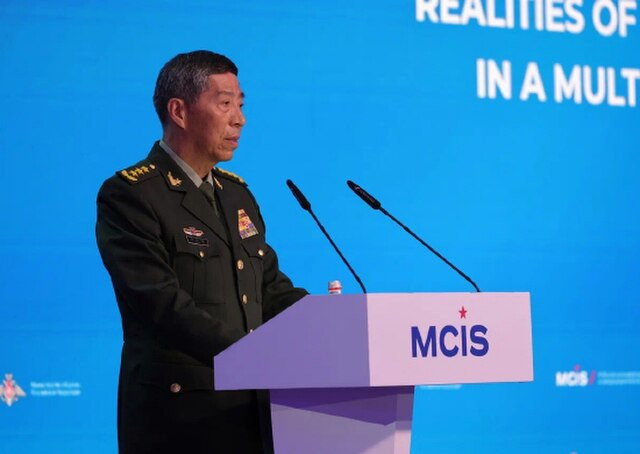China's Defense Minister, Gen. Li Shangfu, has been removed from his position, marking the latest in a series of unexplained personnel shakeups within the country's top leadership. The decision, which was announced on Tuesday, has raised eyebrows globally, given the lack of official explanation and the minister's two-month-long absence from the public eye.
Li Shangfu's removal was not an isolated incident. He was also stripped of his titles as a member of the Central Military Commission, a powerful entity overseen by Chinese leader Xi Jinping, and as one of China's state councilors, a position that holds more weight than a regular minister. This decision was ratified by the standing committee of China's National People's Congress, as reported by the state broadcaster, CCTV.
The sudden dismissal of Li, who was appointed as the defense minister in March, follows the mysterious ousting of former Foreign Minister Qin Gang in July. Qin, too, was removed from his role as a state councilor on the same day as Li. These back-to-back high-profile dismissals have sparked debates and speculations about the governance style of President Xi Jinping, who has been known for his consolidation of power and strict enforcement of party discipline.
While the Chinese government has remained tight-lipped about the reasons behind these changes, various reports suggest that both ministers might have been under investigation. The Wall Street Journal cited sources close to Beijing's decision-making process, indicating that Li was taken away for questioning in September. Similarly, The Financial Times reported that the U.S. government believes Li has been placed under investigation, although the reasons remain undisclosed.
Li's absence from the public domain and his subsequent removal have raised questions about the internal dynamics of China's political landscape. Xi Jinping has been emphasizing political loyalty, discipline, and the party's "absolute leadership" over the armed forces. This focus on loyalty and discipline has led to concerns about potential purges within the military ranks.
Interestingly, Li's removal might pave the way for smoother military talks between China and the United States. Li had previously been sanctioned by the U.S. in 2018 over China's acquisition of Russian weapons. Beijing had hinted that high-level military discussions would be contingent on the revocation of these sanctions.
Li's career trajectory has been noteworthy. He spent over three decades at one of China's primary satellite-launch sites in Sichuan, eventually becoming its director. He was later promoted to work in the PLA's headquarters on armaments in 2013, shortly after Xi Jinping assumed power. Li is believed to be closely associated with General Zhang Youxia, a childhood friend of Xi and a significant figure in the military.
The recent events, coupled with Li's last public appearance in late August during the China-Africa Peace and Security Forum in Beijing, have left many questions unanswered. As the world watches closely, the unfolding events in China's political arena will undoubtedly have broader implications on its international relations and internal governance.





